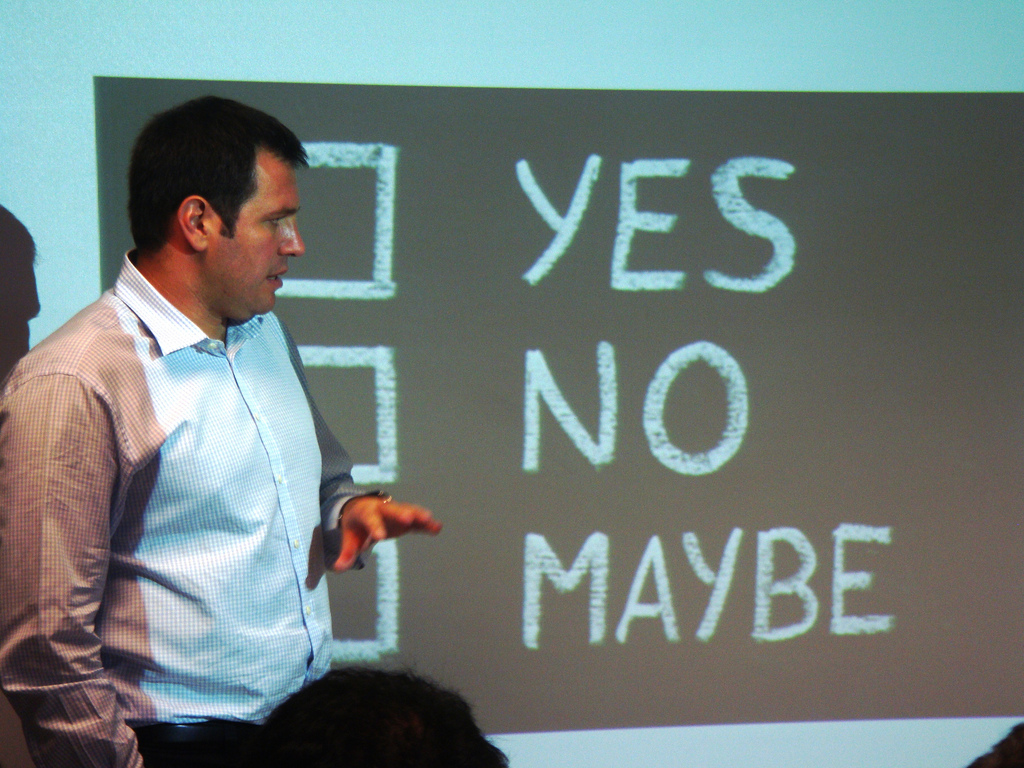The SBA has it wrong. A business plan is not always what you need. Financial planning is advisable to the extent that you have access to enough money or capital to conduct your first few experiments. However, small business counselors, mentors, and the SBA often encourage ALL fledgling businesses to write a business plan. This advice is just downright wrong. Here is why.
A business plan will not get you a loan. First-time entrepreneurs are told that they need a business plan to get money from the bank. While there is some truth to this, it is unlikely that they will actually get any funds from the bank to start their business. These new entrepreneurs do not have an existing track record and banks are conservative lenders. This means that writing a business plan in the hopes that a bank will provide debt financing should not be the sole motivation for developing a business plan. It’s just not a good enough reason by itself.
The premise of a business plan is to predict the future and then develop a product or service to exploit it. Most businesses are non-employer businesses, meaning that the owner is the business – there are no employees. Many entrepreneurs are simply using their assets, talents, and abilities to solve a very specific problem for a very specific client. Rather than developing a product or service for the masses, many entrepreneurs create a strategic partnership with a client who is actually engaged in designing the solution with the entrepreneur. The entrepreneur is, therefore, influencing the future through their interactions with the client and not trying to predict the future demand for it as a business plan as you do as part of the marketing plan.
Moreover, because the business is often self-funded, the entrepreneur looks at the markets they can reach with the minimal expenditure of time, effort, and money rather than the biggest market, a.k.a. the market that the business planning process often advises the entrepreneur to chase. Many entrepreneurs are looking for the best ratio of investment to return. If the required investment is small but creates a decent return, it is better than the larger investment that only generates a slightly better return.
New entrepreneurs try not to spend too much time in upfront development since they realize that the plan will immediately change after the first contact with the customer. Rather than spending months planning for ways to avoid surprises, the entrepreneur launches his business without a plan. He avoids becoming committed to any one solution so he can adjust as his ideas develop more. This approach allows him to welcome surprises. Rather than taking the “ready, aim, fire” approach recommended by business plans, most entrepreneurs practice the “ready, fire, adjust aim” model.
Finally, the act of developing a business plan is confusing to many new entrepreneurs. The marketing sub-plans found in business plan templates are heavily tilted toward product development while most startups are service type businesses. Furthermore, the operation’s sub-plan is designed for larger businesses with staff and investors that the small business does not need. The entire process is so disconnected and foreign to the entrepreneur that the process of creating a business plan often discourages many from actually moving off the dime and starting their business in the first place.
Is it time for you to forget your business plan and just do it?












